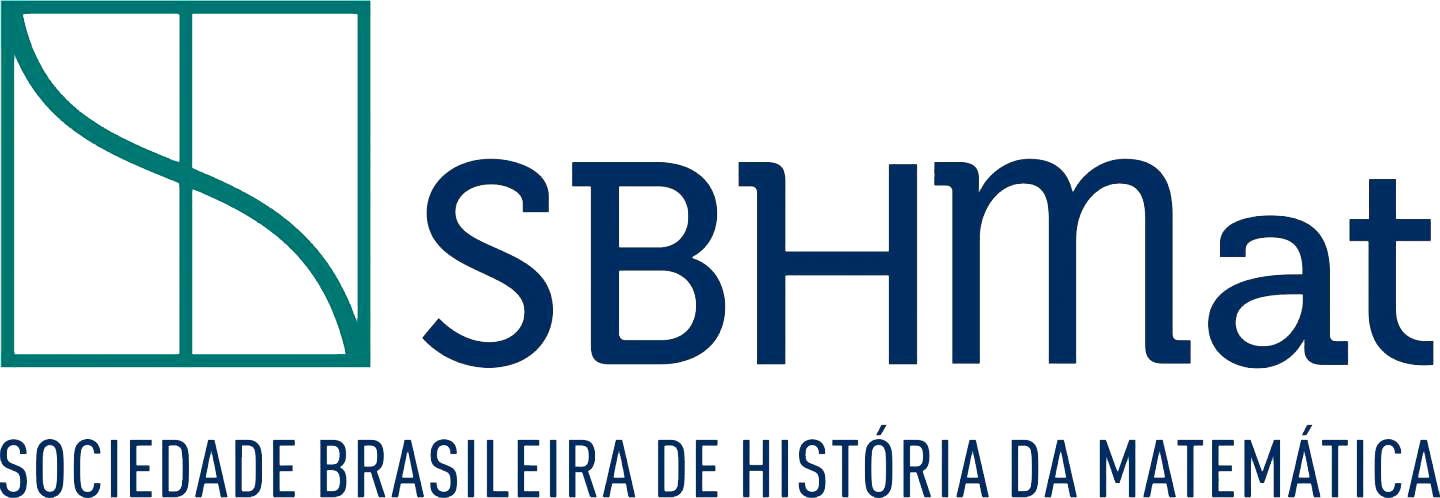Os Matemáticos da Evolução: Complexidade Especificada
DOI:
10.47976/RBHM2021v20n4189-108Palavras-chave:
Teoria da evolução, mecanismo darwiniano, matemática, complexidadeResumo
Este artigo revisita as incursões históricas de matemáticos na teoria evolucionária. O objetivo é apresentar algumas reflexões de tratativas matemáticas na discussão da complexidade presente na evolução. Os matemáticos propõem caminhos alternativos por coevolução mútua, metabiologia, ou design, infligindo desafios mais profundos na compreensão dos processos evolutivos de organismos vivos.
Downloads
Métricas
Referências
CHAITIN, Gregory. 2003. From Philosophy to Program Size. arXiv:math/0303352.
CHAITIN, Gregory. 2003. Randomness and Mathematical Proof. In: From Complexity to Life: On the Emergence of Life and Meaning. New York: Oxford University Press, pp. 19-33.
CHAITIN, Gregory. 2012. Proving Darwin. Making Biology Mathematical. New York: Pantheon Books.
CULBERSON, Joseph. On the Futility of Blind Search: An Algorithmic View of ‘No Free Lunch’. Evolutionary Computation, vol. 6, n. 2, p. 109-127, 1998.
DAVIES, Paul. 2000. The Fifth Miracle: the Search for the Origen of Life. New York: Simon & Schuster.
DAVIES, Paul. 2003. Toward an Emergentist Worldview In: From Complexity to Life: On the Emergence of Life and Meaning. New York: Oxford University Press, pp. 3-16.
DAWKINS, Richard. 1986. The Blind Watchmaker. New York: Norton.
DEMBSKI, William. 1988. Chaos, Uniform Probability, and Weak Convergence. Tese. Chicago: University of Chicago, Department of Mathematics.
DEMBSKI, William. 1991. Randomness by Design. Noûs, vol. 25, p. 75–106.
DEMBSKI, William. 1994. On the Very Possibility of Inteligent Design. In: The Creation Hypothesis: Scientific Evidence for an Intelligent Designer. MORELAND, J. P. (editor). Madison: IVP Books, pp. 113-138.
DEMBSKI, William. 1998. The Design Inference: Eliminating Chance through Small Probabilities. New York: Cambridge University Press.
DEMBSKI, William. 2002. If Only Darwinists Scrutinized Their Own Work as Closely: A Response to 'Erik', https://billdembski.com/documents/2002.08.Erik_Response.htm, Acessado em 21 de março de 2020.
DEMBSKI, William. 2003. Can Evolutionary Algorithms Generate Specified Complexity? In: From Complexity to Life: On the Emergence of Life and Meaning. New York: Oxford University Press, pp. 93-113.
EWERT, Winston, DEMBSKI, William e MARKS, Robert. 2009. Evolutionary Synthesis of Nand Logic: Dissecting a Digital Organism. Proceedings of the 2009 IEEE International Conference on Systems, Man, and Cybernetics. San Antonio, TX: IEEE Systems, Man, and Cybernetics Society. pp. 3047–3053.
EWERT, Winston, DEMBSKI, William e MARKS, Robert. 2013. Active Information in Metabiology. BIO-Complexity, vol. 4, p. 1–10.
FRAZIER, Kendrick e RADFORD, Benjamin. 2002. Fourth World Skeptics Conference in Burbank a Lively Foment of Ideas. Skeptical Inquirer, vol. 26, n. 5, p. 5-12.
KAUFFMAN, Stuart. 2000. Investigations: Scope for a Possible “Fourth Law” of Thermodynamics for Non-Equilibrium Systems. New York: Oxford University Press.
KAUFFMAN, Stuart. 2003. The Emergence of Autonomous Agents In: From Complexity to Life: On the Emergence of Life and Meaning. New York: Oxford University Press, pp. 47-71.
KIMURA, Motoo. 1983. The Neutral Theory of Molecular Evolution, Cambridge: Cambridge University Press.
MAYNARD SMITH, J. 1986. The Problems of Biology. New York: Oxford University Press.
MITCHELL, Melanie. 1997. Review of "Figments of Reality" by Ian Stewart and Jack Cohen. New Scientist, August 11, 1997.
SIEDLIŃSKI, Rodoslaw. 2016. Turing machines and evolution. A critique of Gregory Chaitin’s metabiology. Studies in Logic, Grammar and Rhetoric, vol. 48, n. 61, p. 133-150.
SKÅR, John; COVENEY, Peter; STEWART, Ian. 2003. Self–organization in evolution: a mathematical perspective. 361. Philosophical Transactions of the Royal Society of London. Series A: Mathematical, Physical and Engineering Sciences.
SOUZA, Josiney. 2016. Os matemáticos da evolução. Revista Eletrônica Espaço Teológico, vol. 10, n. 17, p. 54-70.
STEWART, Ian. 1969. Subideals of Lie algebras. Tese. Warwick: University of Warwick.
STEWART, Ian N., 2003. Second Law of Gravitics and Fourth Law of Thermodynamics. In: From Complexity to Life: On the Emergence of Life and Meaning. New York: Oxford University Press, pp. 114-150.
STEWART, Ian e COHEN, J., 1997. Figments of Reality: The Evolution of the Curious Mind. Cambridge: Cambridge University Press.
Downloads
Publicado
Métricas
Visualizações do artigo: 693 PDF downloads: 19655




































